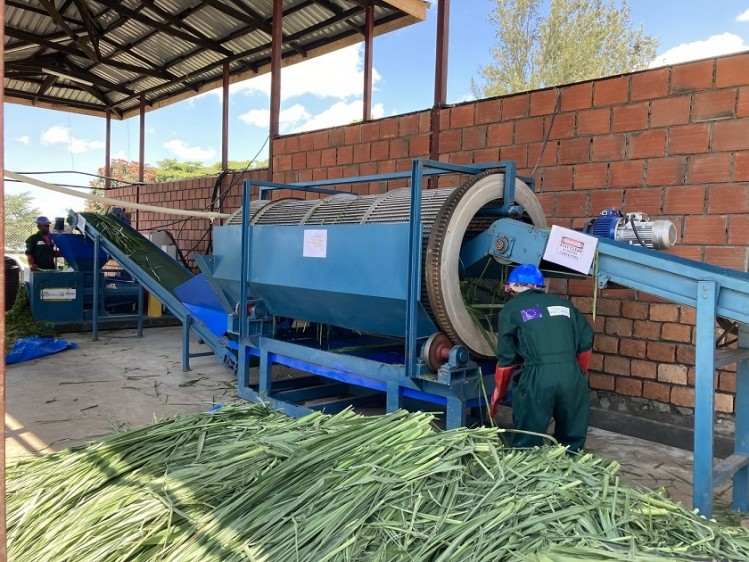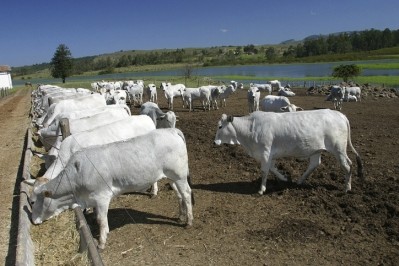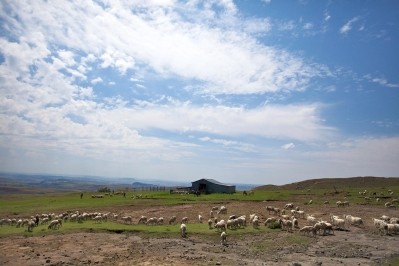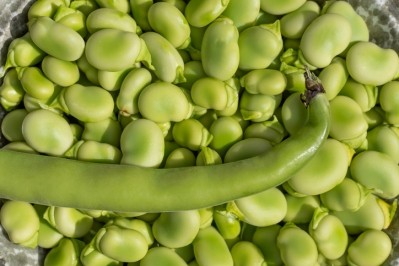Africa secures first green biorefinery for sustainable animal feed

Using locally grown grass and other pasture crops, the goal of the biorefinery is to produce protein-rich feed for livestock and create new revenue opportunities for smallholder farmers in Uganda.
It is designed to be a step towards replacing expensive soy imports with a home-grown source of sustainable, high-quality protein.
BIO4Africa, comprising 13 partners in Africa and 12 partners in the EU, is a four-year project to transfer simple, small-scale, and robust bio-based technology to rural Africa. It began in May 2021.
The first year was spent primarily on assessing local needs and contexts through surveys and workshops with farmers, farmer coops and other relevant stakeholders in the four focus countries: Uganda, Ghana, Senegal and Côte d’Ivoire.
The overarching objective of the initiative is to contribute to long-term improvements in livelihoods, food security and community resilience and a reduction in rural migration. Those behind the project want to empower African farmers and farming communities to produce a wider range of high-value products using local biomass.
By developing new business opportunities, the idea is the project will support farmers in making more from less and diversifying their incomes. Circular business models will ensure social, economic, and environmental sustainability.
The biorefinery lies in Fort Portal on the premises of Kabarole Research & Resource Centre (KRC), one of the 25 partners in the consortium. Another partner, Dutch biotech company, Grassa, has supplied the expertise and the equipment for the plant.
“The green biorefinery is not just the first in Africa. It’s only the third of its kind in the world. We’re looking at an integrated approach, where many crop and livestock farmers can benefit from this circular model,” said Mohammed Shariff, executive director at KRC.
Local farmers are already delivering grass to the biorefinery for processing. Operating like a slow juicer, the biorefinery squeezes the grass to extract the protein-rich juice. Both the juice and fibrous press cake pack a nutritious punch in livestock feed – and are a cheaper, more accessible alternative to traditional soy-based products.
Wim van Doorn, project lead at Grassa, outlined how the protein concentrate can be dried and used in monogastric feed. The press cake can also be ensiled and fed to cows and goats. “Because these products are easy to store and transport, they offer a good opportunity for farmers to improve their incomes.”
Food security
Better quality feed for livestock farmers can also help solve one of Uganda’s most pressing challenges – the high level of malnutrition. According to UNICEF Uganda, stunting due to malnutrition affects more than a third of children below the age of five.
“Implementation of this biotechnology can enable livestock farmers to improve their productivity, so they can deliver more meat, milk and eggs to the population – and contribute to reducing malnutrition in this region and the country as a whole,” continued Shariff.
Pilot stage
The biorefinery is currently operating at pilot scale and can process up to 200kg of grass or other green-leaf crops an hour, a spokesperson told us.
Trials are currently evaluating elephant grass hybrid with millet. Once these are complete, the BIO4Africa partners said they will start testing the biorefining technology on the leaves of Mucuna beans, alfalfa and other green-leaf crops supplied by local farmers.
The ambition is to get crop and livestock farmers working in circular harmony – where crop farmers supply biomass to the biorefinery, which produces feed products for livestock farmers, who then deliver manure back to the fields as a fertilizer.
Based on experience gained in Uganda, a second green biorefinery will be established in Ghana in 2023.










